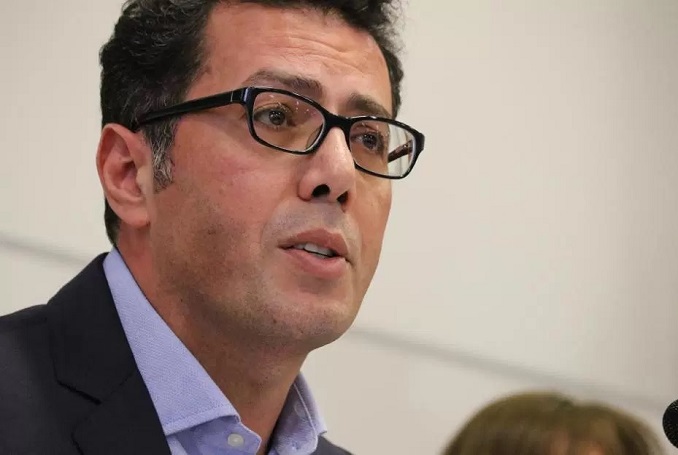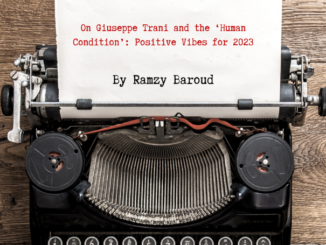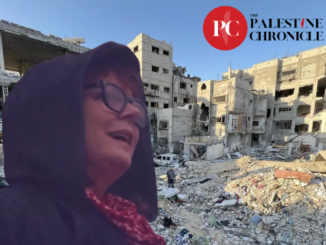
“Until the lion learns how to write, every story will glorify the hunter” is a popular adage within the African decolonial literary movement, and according to Palestinian author, Ramzy Baroud, it accurately describes how the Israeli narrative has dominated the story of the occupation of Palestine.
Baroud will be in Nairobi from June 25 to July 3 on a ground-breaking tour to discuss his latest book, The Last Earth (Pluto, 2018) at various venues across the city.
Noam Chomsky on Ramzy Baroud's THE LAST EARTH: “In the finest tradition of people’s history." Pluto Press: https://t.co/wiIcIUAlI3. Amazon: https://t.co/ccz0nTzvmy. University of Chicago Press: https://t.co/8VUwxZ855O pic.twitter.com/Rbp6yRw3nA
— Ramzy Baroud (@RamzyBaroud) April 29, 2019
The book tells the stories of dispossession, exile, and loss of ordinary Palestinians – but it is also about hope and resistance in modern Palestine, says Baroud. “I hope that, in some way, The Last Earth, will change the way that Kenyans see Palestine and its people.”
Baroud’s hosts – the Kenya Palestine Solidarity Movement (KPSM) – share his hope.
“Kenya’s own history and struggle against colonialism put us in a unique position to understand the liberation and anti-colonial struggle of the Palestinian people. We hope that Ramzy will provide a clearer understanding of the occupation of Palestine for Kenyan audiences,” says KPSM co-chairperson, Naomi Barasa.
In writing The Last Earth, Baroud drew on dozens of interviews to produce a vivid and intimate account of Palestinian lives – in villages, refugee camps, prisons, and cities, in the lands of their ancestors and in exile.
Meeting in Vancouver, Canada with Dr. Ramzy Baroud, launching his new book "The Last Earth: A Palestinian Story" https://t.co/Z2SH5thqys pic.twitter.com/CdlpLy9RG1
— Ramzy Baroud (@RamzyBaroud) May 31, 2019
“Ordinary Palestinians have rarely narrated their own history, and this is an attempt to reclaim our narrative. The stories of the occupation are told by the occupier, the stories of colonialism are told by the colonizers,” says Baroud.
Baroud says that he is part of a new generation of Palestinian lions challenging their Israeli hunter’s narrative. Baroud’s previous books include My Father Was a Freedom Fighter and The Second Palestinian Intifada – both of which chronicle the Palestinian struggle against occupation from a human perspective.
Interview with Ramzy Baroud, Editor-in-Chief of the Palestine Chronicle and author of "The Last Earth: A Palestinian Story" https://t.co/IjHa1dpOI0 pic.twitter.com/PRPZJFS1g2
— Ramzy Baroud (@RamzyBaroud) June 6, 2019
“This image of Africa as helpless, hungry and in desperate need of civilization was planted in our minds by the same people who view Arabs – and Palestinians in particular – as savage terrorists. We must challenge both stereotypes,” states Baroud.
Palestine and the Palestinians, says Baroud, are much more than the peace process or suicide bombers. “Like Africans, we Palestinians are a proud people resisting occupation and colonialism. The story of Palestine is the story of the Palestinian people, starting with the creation of Israel on the ruins of Palestinian towns and villages in 1948. If Palestinians hadn’t resisted, their story would have ended right there and then, and they too would have disappeared,” he explains.
"The Last Earth: A Palestinian Story" by Ramzy Baroud is reviewed in Arab News https://t.co/HTZZsEAR4w
— Asian Review Books (@BookReviewsAsia) January 15, 2019
Born into a family of refugees in the Nuseirat Refugee Camp in the Gaza Strip, Baroud was forced into exile in the United States. But home for him will always be Beit Daras – a Palestinian village that was destroyed by Israeli forces in 1948. “When Google Earth was launched in 2001, I rushed immediately to locate a village that no longer exists on a map. I wasn’t crazy. The village of Beit Daras is the single most important piece of earth to me.”
Baroud’s statement reflects the feelings of millions of displaced Palestinians longing to return to their ancestral villages.
Notes for journalists and editors:
- To schedule an interview with Ramzy Baroud, please contact Zahid Rajan in Nairobi on +254 722 344 900 or email kenya.palestinefs@gmail.com
- The full schedule of events can be viewed on Kenya na Palestine’s social media platforms. Find them as follows: Twitter: @KenyaPalestine – Facebook: Kenya na Palestine







